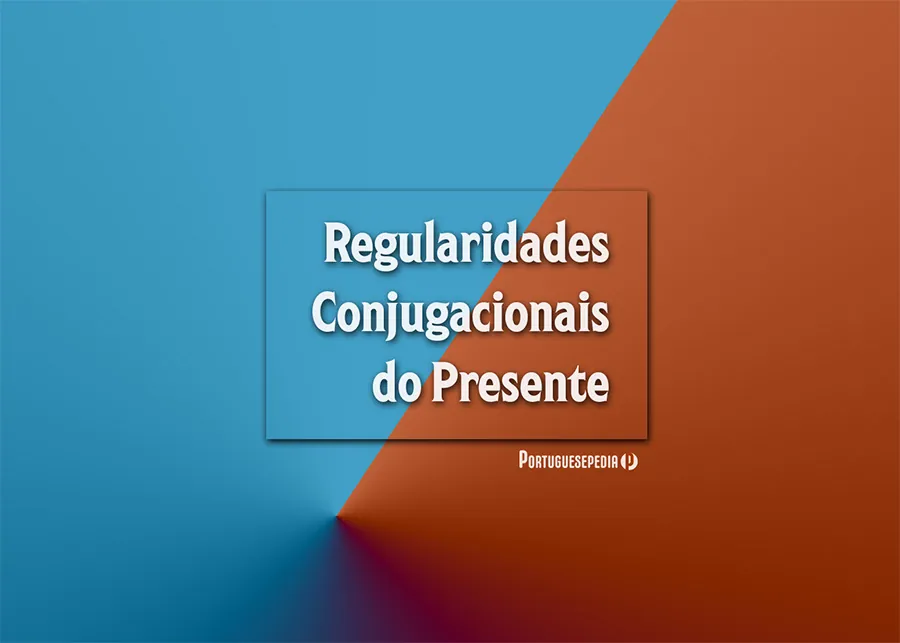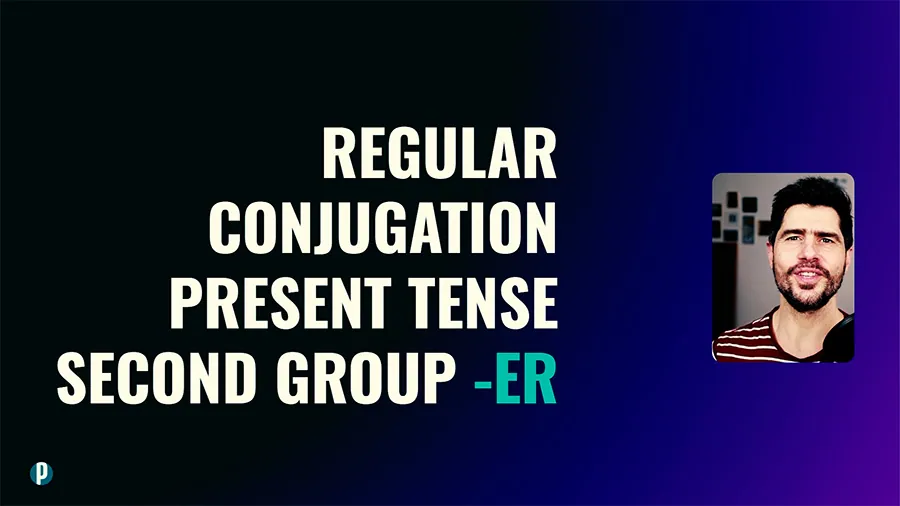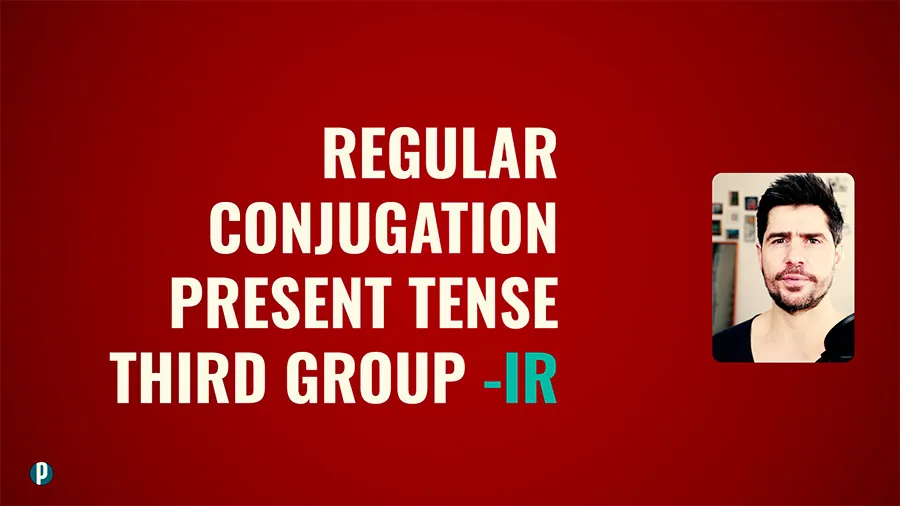
Portuguese Regular Verbs in the Present Tense
Portuguese verbs are indeed more cumbersome to learn than, say, English. Being a Romance language, Portuguese is not short of verb forms to keep track of.
Fortunately, there are plenty of regular verbs as well, that is, verbs following a regular pattern concerning their conjugation. This means that you can learn and apply a conjugation “formula” that works with any regular verb. Neat.
In Portuguese, regular verbs are distributed into 3 conjugation groups:
| 1st conjugation: -AR (Acordar) | 2nd conjugation: -ER (Mexer) | 3rd conjugation: -IR (Partir) | |
| Eu | acordo | mexo | parto |
| Tu | acordas | mexes | partes |
| Ele, ela, você | acorda | mexe | parte |
| Nós | acordamos | mexemos | partimos |
| Vocês | acordam | mexem | partem |
| Eles, elas | acordam | mexem | partem |
In what follows, I will walk you through the conjugation patterns in greater detail. Namely, we look into some minor spelling adjustments that sometimes occur in the first person of the present tense. Read on.
Here’s an analogous article for the past tense: Portuguese Regular Verbs in the Past Tense.
Regular conjugation
To conjugate any regular verb in the present tense, remove the ending of the infinitive – either –ar, –er, or –ir – and add, instead, the following endings to the stem (marked in bold):
| 1st conjugation: -AR (Pensar) | 2nd conjugation: -ER (Vender) | 3rd conjugation: -IR (Abrir) | |
| Eu | penso | vendo | abro |
| Tu | pensas | vendes | abres |
| Ele, ela, você | pensa | vende | abre |
| Nós | pensamos | vendemos | abrimos |
| Vocês (vós)* | pensam (pensais) | vendem (vendeis) | abrem (abris) |
| Eles, elas | pensam | vendem | abrem |
| Other commonly used regular verbs | ficar, andar, falar, chegar, costumar, gostar, morar | comer, beber, querer, dever, correr, viver | partir, existir, sentir, dormir |
* In modern Portuguese, the 2- and 3-person plural share the same verb form. You may occasionally hear an outdated version (enclosed in parentheses in the table above) in conjunction with the pronoun vós. As its usage becomes ever rarer, I don’t think you should bother to learn it.
Minor spelling adjustments
There are a few verbs in the -ir group whose conjugation follows the above pattern except for the first person – these are verbs containing either an e or an o in their stem.
So, the e and o become i and u (respectively) in the first person. Here are a few examples:
| e to i | |
| despir | eu dispo, tu despes, ele despe, etc. |
| mentir | eu minto, tu mentes, ele mente, etc. |
| preferir | eu prefiro, tu preferes, ele, prefere, etc |
| o to u | |
| cobrir | eu cubro, tu cobres, ele, cobre, etc. |
| dormir | eu durmo, tu dormes, ele dorme, etc. |
| tossir | eu tusso, tu tosses, ele tosse, etc. |
Also, if the stem of an -er or -ir verb ends in -c, -g, or –gu, these consonants change to -ç, -j, and g respectively in the first person of the present tense (to preserve the original consonant sound*):
| c to ç | |
| conhecer | eu conheço, tu conheces, ele conhece, etc. |
| parecer | eu pareço, tu pareces, ele parece, etc. |
| g to j | |
| fugir | eu fujo, tu foges, ele foge, etc. |
| agir | eu ajo, tu ages, ele age, etc. |
| gu to g | |
| conseguir | eu consigo, tu consegues, ele consegue, etc. |
| seguir | eu sigo, tu segues, ele segue, etc. |
* Learn more about Portuguese phonology and spelling-sound patterns: European Portuguese Pronunciation – Complete Guide to Portuguese Phonology and Spelling-Sound Patterns.
10 non-regular verbs you want to learn
There are indeed many regular verbs in the present tense (the 1st-conjugation group is by far the largest). However, some of the most widely used Portuguese verbs happen to be irregular.
Here’re 10 Portuguese irregular verbs you should know by heart:
| ser (be) | sou, és, é, somos, são |
| estar (be) | estou, estás, está, estamos, estão |
| ter (have) | tenho, tens, tem, temos, têm |
| haver (there is) | há |
| dar (give) | dou, dás, dá, damos, dão |
| pôr (put) | ponho, pões, põe, pomos, põem |
| ir (go) | vou, vais, vai, vamos, vão |
| fazer (do, make) | faço, fazes, faz, fazemos, fazem |
| poder (can) | posso, podes, pode, podemos, podem |
| saber (know) | sei, sabes, sabe, sabemos, sabem |
Reading tips! Speaking of widely used verbs. Here are a few reads that will turn you into a better user of Portuguese:
• Portuguese Must-Know Irregular Verbs
• Making the Most of the Portuguese Verb “Ficar”: Usage Rundown and Conjugation
• The Portuguese Verb “Haver” and All the Things You Say with It
• The Portuguese Verb “Dar”: Usage and Idiomatic Expressions
• Portuguese Verbs Ser vs. Estar: How and When to Use Either

Olá! I'm Pedro and I'm your Portuguese teacher.
Ready to unlock the beauty of European Portuguese? Portuguesepedia is your key! This all-in-one platform provides a wealth of learning resources, from bite-sized video lessons to immersive idiomatic dips. Perfect your pronunciation and aural comprehension with listening drills and solidify your grammar with in-depth articles. Start your Portuguese journey today!
Share this article
Get my guide "Key Strategies to Learn Portuguese" for FREE.




